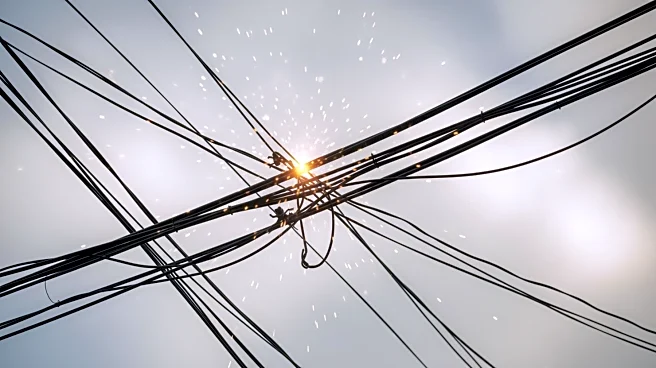What's Happening?
The Eastern Cape Division of the High Court in Makhanda has ruled in favor of South Africa's National Council of SPCAs (NSPCA), enhancing its authority to inspect vessels involved in the live export of animals. This decision overturns previous restrictions
imposed by the East London Magistrates’ Court, which limited NSPCA officers' access to the vessel Al Messilah and prohibited the collection of visual evidence. The High Court emphasized the NSPCA's right to gather evidence as part of its mandate to prevent animal cruelty. The ruling clarifies that the NSPCA's authority includes documenting conditions on board, which is essential for large-scale operations like live exports. The court also confirmed that all requested NSPCA inspectors must be authorized for such inspections.
Why It's Important?
This ruling is significant as it reinforces the NSPCA's role in safeguarding animal welfare during live exports, a practice often criticized for its potential to cause animal suffering. By allowing comprehensive inspections, the NSPCA can better ensure compliance with animal welfare standards, potentially leading to improved conditions for animals during transport. The decision also sets a legal precedent that could influence future cases involving animal welfare and the interpretation of related laws. It highlights the importance of modern statutory interpretation that aligns with constitutional principles, ensuring that animal protection laws are effectively enforced.
What's Next?
Following this ruling, the NSPCA is expected to increase its oversight of live export operations, ensuring that animal welfare guidelines are strictly followed. The decision may prompt other countries to review their own regulations regarding live animal exports. Additionally, the ruling could lead to increased scrutiny of the live export industry, potentially resulting in policy changes or stricter regulations to protect animal welfare. Stakeholders in the industry, including exporters and government authorities, may need to adjust their practices to comply with enhanced inspection protocols.
















